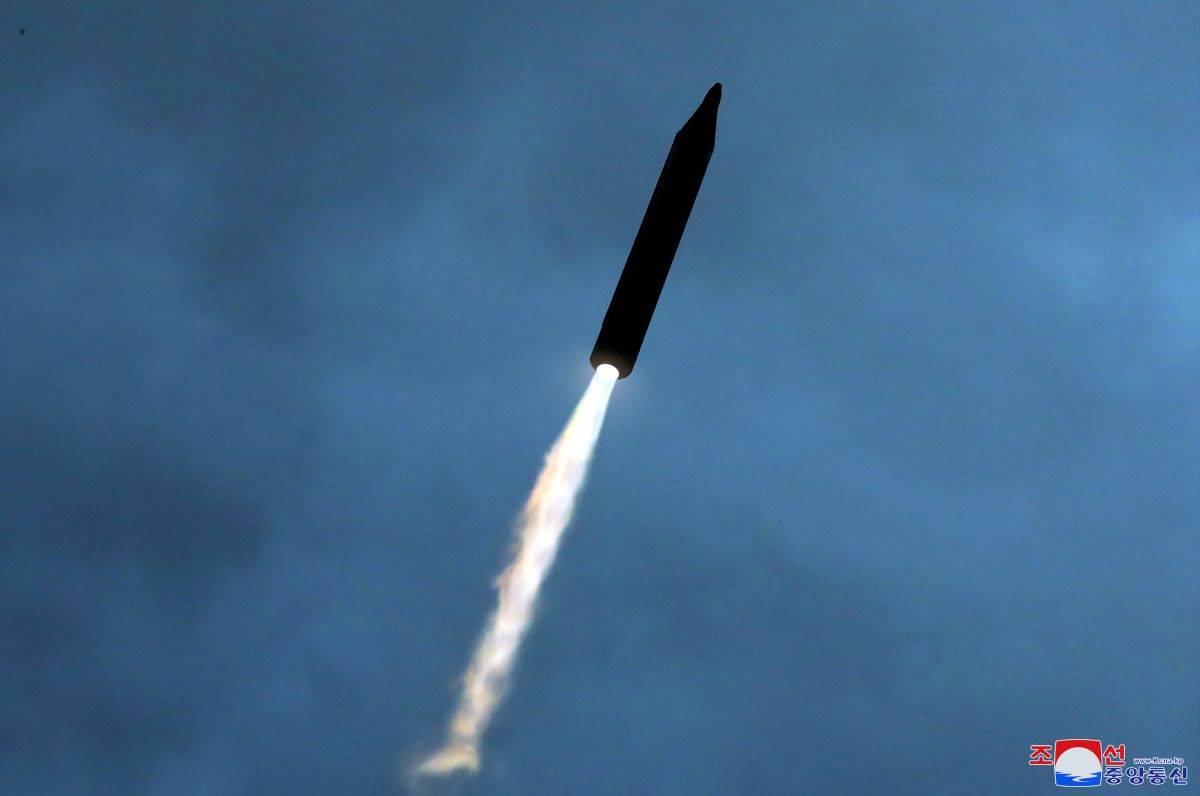North Korea fired artillery barrage overnight, Seoul says

North Korea fired an artillery barrage into a maritime "buffer zone" overnight, Seoul's military said Friday, after a record-breaking blitz of launches that included a failed intercontinental ballistic missile test.
Seoul and Washington, which have warned Pyongyang's recent launches could culminate in a nuclear test, extended their largest-ever joint air drills through Saturday in response to the flurry of projectiles.
Shortly after that decision was announced Thursday, Pyongyang fired three short-range ballistic missiles, calling the move "a very dangerous and wrong choice".
About 80 artillery rounds were then fired at 11:28 pm (1428 GMT) into a maritime "buffer zone" by the North, Seoul's military said.
The barrage was a "clear violation" of the 2018 agreement that established the buffer zone in a bid to reduce tensions between the two sides, Seoul's Joints Chiefs of Staff said.
US Defence Secretary Lloyd Austin described Pyongyang's ICBM launch as "illegal and destabilising", and Seoul and Washington vowed to pursue new measures to demonstrate their "determination and capabilities" against the North's growing threats.
Pyongyang fired about 30 missiles throughout Wednesday and Thursday, including one that landed near South Korea's territorial waters for the first time since the end of the Korean War in 1953.
South Korea's President Yoon Suk-yeol said it was "effectively a territorial invasion".
Experts and officials have said Pyongyang is ramping up its tests in protest over the US-South Korean drills and as it prepares to conduct another nuclear test, which would be its seventh.
Pyongyang has called the joint air drills, dubbed Vigilant Storm, "an aggressive and provocative military drill targeting" North Korea, and threatened that Washington and Seoul would "pay the most horrible price in history" if it continued.
In addition to extending Vigilant Storm through Saturday, the Seoul military announced that the Taegeuk exercise, an annual drill focusing on "improving wartime transition performance" and crisis management would be held next week.
The upcoming computer-simulated exercise will be carried out to strengthen "the ability to carry out practical mission capability in preparation for various threats such as North Korea's nuclear weapons, missiles, and recent provocations," it said. —Agence France-Presse




